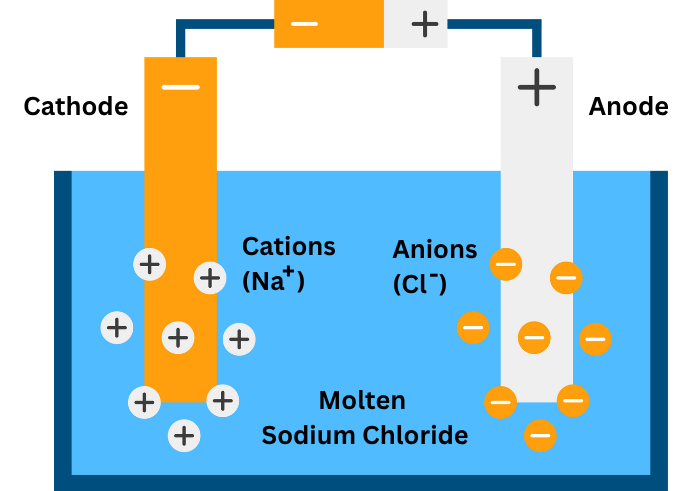
The content in any two subjects isn’t the same. No two exams in May will be the same. No two lessons are the same in school. So why should your revision be the same for all subjects? Our GCSE Chemistry Tutors have put together this free guide for you to use.
Many students struggle with GCSE Chemistry because it combines elements from all three sciences —some biology in the chemistry of the atmosphere, some physics in electrolysis, and fuel cells.
This guide will breakdown exactly how our past GCSE Chemistry students who have achieved 8s and 9s in their exams, Chemistry Tutoring done right!
Let’s take Electrolysis as an example. Many students struggle with this topic and come to their Science Tutors at SmartX for help making sense of it. It is one of the hardest Chemistry topics!
There are two different types of electrolysis:
In Molten Electrolysis, the cations (positive ions) move towards the cathode (negative electrode) as they are attracted towards it. Similarly, the anions (negative ions) move towards the anode (positive electrode) as they are attracted towards it.
Instead of remembering anode is positive and cathode is negative, try this technique:

This is just an introduction to the topic; there are a lot more things to discover and understand, such as what happens in an aqueous solution where water is involved, or what are half equations, or even what species is being reduced and which species is being oxidised?
Understanding and digesting the content is the most important part of Science, whether that is Physics, Chemistry or Biology. Both GCSE Science and A Level Sciences are content heavy, remember to keep recapping old content to keep it fresh in your mind.
SmartX Tutors can help you “think like an examiner” – identifying keywords that will fill you with confidence going into that GCSE exam hall!
Past papers are your best friends. The best way to make sure you know how to apply your knowledge is through past papers. They can also give you a lot of information on what to revise next. This is how you should do every past paper:
This method is something SmartX Tutors use with students to help make a curated exam prep programme that can be used to build accuracy, confidence and exam timing.
GCSE Chemistry success is not just going to come from memorising the textbook; it will come from understanding. By mastering calculations and training with real exam questions, you can approach your chemistry exams with clarity and confidence.
At SmartX Tutoring, our one to one Chemistry tutoring sessions help students build these exact skills – turning confusion into confidence and knowledge into top grades.
© 2024 SmartX Tutoring | Privacy policy | Cookies | Terms & Conditions